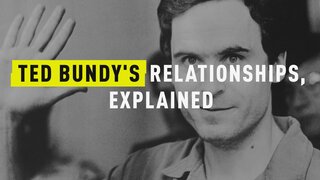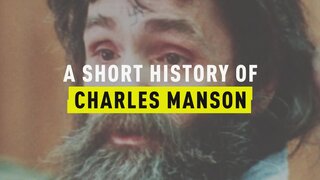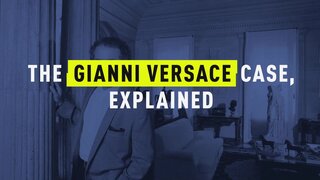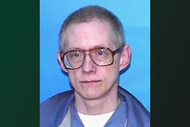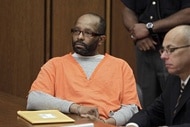Create a free profile to get unlimited access to exclusive videos, breaking news, sweepstakes, and more!
Did Elizabeth Kloepfer Really Visit Ted Bundy Before His Execution Like In 'Extremely Wicked?'
After years of lies and betrayal, Liz demands answers from Ted Bundy in "Extremely Wicked, Shockingly Evil And Vile," but the real confrontation between the pair took place in a different setting.
After years of wondering, serial killer Ted Bundy’s long-time girlfriend finally confronts her ex-boyfriend about the vicious murders he was convicted of committing in a chilling prison scene in the new biopic, “Extremely Wicked, Shockingly Evil and Vile.”
The film, now streaming on Netflix, is based on an out-of-print book, “The Phantom Prince: My Life With Ted Bundy,” written by Bundy’s former girlfriend Liz Kloepfer under the pen name Liz Kendall.
“Did you do these things, Ted?” a somber Liz asks over a prison telephone as she demands to know the truth about the crimes Bundy had been convicted of — it's believed Bundy murdered more than 30 women during his years-long killing spree across the country.
Did this final face-off between Bundy (played in the film by Zac Efron) and Liz (portrayed by Lily Collins) ever actually happen?
The short answer: No. As far as reports go, Liz never visited her former boyfriend on death row. But Bundy did call Liz shortly after his arrest in Florida and confess to her that he was controlled by a “force” he couldn’t contain. Bundy was later charged for the brutal attack and murder of girls at a Florida sorority house.
“The force would just consume me. Like one night, I was walking by the campus and I followed this sorority girl. I didn’t want to follow her. I didn’t do anything but follow her and that’s how it was. I’d be out late at night and follow people like that… I’d try not to, but I’d do it anyway,” Bundy said in the call from jail, according to “The Phantom Prince.”
Liz, who described Bundy as calling in tears and wanting to take "responsibility" for his actions, said she responded to the admission by saying "I love you" and adding that she didn't know what else to say.
Bundy reportedly told her that he fought against the "force" but that it just got too strong.
"I tried to suppress it. It was taking more and more of my time. That's why I didn't do well in school. My time was being used trying to make my life look normal. But I wasn't normal," he said, according to the book.
In the same phone call, Bundy admitted that one night he had also tried to take her life by plugging up the flue on the fireplace and leaving her sleeping in the apartment.
"Extremely Wicked’s" director, Joe Berlinger, told Oxygen.com he made the decision to alter how the confrontation played out between the pair because the real confession was too “obtuse” and never gave the definitive moment viewers would have wanted.
Berlinger also believed that filming another phone call scene “was just not going to be dramatic.”
While Bundy is sitting in jail after being arrested for committing the heinous crimes, Liz is in her own prison too, Berlinger said.
“She’s stuck in that apartment… coming to grips with the reality of what she’s realizing, of what she’s seeing on television, and so you know, it’s not particularly dramatic, but it was a necessary way to show her being tortured and paralyzed and so she needs to come back from that,” he explained.
Plus, adding in the exchange between the former couple on death row gave Liz the opportunity to hold Bundy accountable for his actions.
“I actually think this movie is very much about the victims and the victim’s experience and in this day and age, in this MeToo era, holding people accountable, making them speak the words, making them admit, to me, is very important,” Berlinger said.
Berlinger took dramatic license to add the prison death row scene to give Liz a “redemptive moment” to confront Bundy about his betrayal and lies throughout their relationship.
“She needs to emerge as a strong female holding a male, white privileged dude accountable, who got away with murder and who got away with manipulating the system, manipulating the justice system, even manipulating the media, because the media kind of made him into a perverse star,” Berlinger said.
While the actual exchange between her and Bundy was less intense, Berlinger said she still felt that Bundy gave her the truth in the late night phone call, allowing her to finally release herself from his grips and come to terms with the fact that her suspicions about him over the years had been true.
“I sat on the living room floor huddled in the afghan that Mom made for me. I stared at the floor while scenes of the good times and of the bad times played in my mind like a desolate slide show,” she wrote in her book. “I had prayed for so long 'to know,' and now the answer killed a part of me.”

